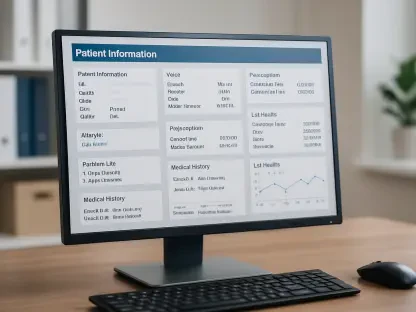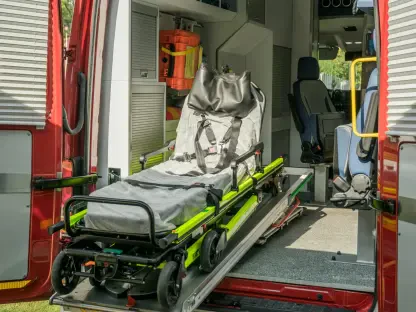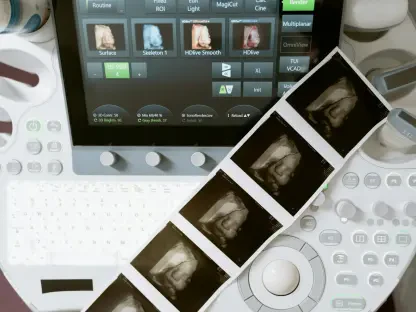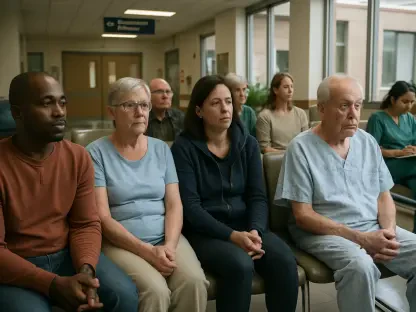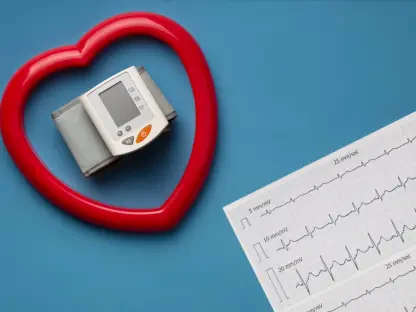In a world where millions grapple with the devastating effects of Alzheimer’s disease, the search for timely and accurate diagnosis has never been more urgent, and a groundbreaking global initiative is stepping up to meet this challenge head-on. The Cleveland Clinic, a renowned leader in medical innovation, has become a key player in an international effort to transform how this debilitating condition is identified and managed. By joining the Davos Alzheimer’s Collaborative Healthcare System Preparedness (DAC-SP) Accurate Diagnosis project, the clinic is contributing to a pioneering study focused on integrating blood-based biomarkers into clinical practice. This collaboration, spanning multiple continents and prestigious institutions, aims to streamline diagnostic pathways in both primary and specialty care settings. The significance of this project lies in its potential to shift the paradigm of Alzheimer’s care, offering hope to patients and families through faster, more precise diagnoses and access to emerging treatments.
Revolutionizing Diagnosis with Blood-Based Biomarkers
The core mission of the DAC-SP Accurate Diagnosis project is to revolutionize Alzheimer’s diagnosis by incorporating blood-based biomarkers into routine healthcare practices, a development that could redefine patient care. At Cleveland Clinic, this initiative is being implemented through the Center for Geriatric Medicine, with additional support from the Lou Ruvo Center for Brain Health for confirmatory testing and access to cutting-edge therapies. The focus is on transitioning validated research tools into everyday clinical settings, enabling healthcare providers to detect Alzheimer’s and related disorders with unprecedented accuracy. This approach builds on years of research to address barriers in diagnosis, particularly in primary care environments where early detection is often most critical. By bridging the gap between research and practical application, the project seeks to ensure that patients receive timely interventions, potentially altering the trajectory of their condition.
Beyond the technical aspects, the integration of blood-based biomarkers at Cleveland Clinic involves a multidisciplinary effort across the Primary Care Institute, Neurological Institute, and Diagnostics Institute. This collaborative approach ensures a comprehensive evaluation of how these diagnostic tools perform in real-world scenarios, from initial patient assessments to follow-up care. The study targets 1,200 patients aged 55 or older with suspected cognitive impairment but no prior diagnosis of Alzheimer’s or related dementias, drawn from various outpatient practices in Northeast Ohio. Over an 18-month period, the clinic will rigorously assess the practical utility of these biomarkers, sharing clinical insights with the broader DAC-SP community through regular knowledge-exchange meetings. This commitment to collaboration underscores the project’s broader goal of refining diagnostic methods on a global scale, ensuring that advancements benefit diverse healthcare settings worldwide.
A Global Network for Systemic Change
The DAC-SP Accurate Diagnosis project extends far beyond Cleveland Clinic, encompassing a network of esteemed institutions such as the University of Kansas Health System, Icahn School of Medicine at Mount Sinai, and Imperial College London, among others. This global coalition reflects a shared understanding that innovative diagnostic tools are essential to overcoming systemic challenges in Alzheimer’s care, particularly in ensuring accessibility across varied healthcare systems. The emphasis on blood-based biomarkers represents a consensus that combining clinical and biological methods can significantly enhance diagnostic precision. By working together, these institutions aim to dismantle barriers that have historically delayed diagnoses, paving the way for earlier interventions and better patient outcomes. The project’s international scope amplifies its potential to create lasting change, addressing the needs of diverse populations affected by this complex disease.
Another vital component of this global effort is the commitment to knowledge sharing, exemplified by the development of the Davos Alzheimer’s Collaborative Early Detection Blueprint. This resource will compile practical learnings and strategies from the project, offering a guide for other healthcare systems to adopt similar diagnostic approaches. The collaborative nature of the initiative, as highlighted by DAC Founding Chairman George Vradenburg, prioritizes patient-centered care and support, ensuring that advancements are not confined to research labs but are translated into tangible benefits for patients. Cleveland Clinic’s role in this network reinforces the importance of integrating cutting-edge tools into dementia care pathways, a step expected to improve access to resources and emerging therapeutics. Through this unified effort, the project aims to set a new standard for Alzheimer’s diagnosis worldwide.
Building a Foundation for Future Care
Reflecting on the strides made, Cleveland Clinic’s participation in the DAC-SP Accurate Diagnosis project marks a significant milestone in the journey toward better Alzheimer’s care. The focus on integrating blood-based biomarkers into clinical practice demonstrates a forward-thinking approach to tackling diagnostic challenges. By collaborating with international partners and sharing critical insights, the clinic plays a pivotal role in shaping a global framework for early detection and intervention.
Looking ahead, the next steps involve leveraging the findings from this initiative to create actionable resources that other healthcare systems can adopt. The emphasis should be on scaling these innovations to reach underserved populations, ensuring equitable access to advanced diagnostic tools. Additionally, continued investment in research and cross-institutional partnerships will be crucial to sustain momentum and address evolving challenges in Alzheimer’s care. The ultimate goal remains clear: to transform the landscape of diagnosis and treatment, offering renewed hope to millions affected by this condition.



